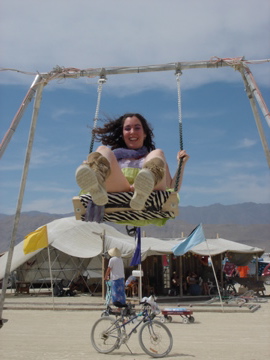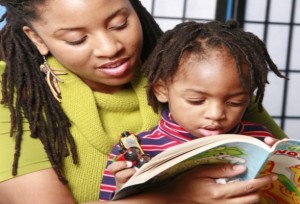Wow, this week has been all about sleep research. I’ve been reading “Nurture Shock” by Po Bronson & Ashley Marryman and whoa, the new sleep research is startling! I also watched a Nova special on sleep, and then last night my husband and I watched an episode of Star Trek Next Generation where the whole crew suffers from sleep deprivation due to lack of REM sleep.
It’s all pretty interesting stuff, so here’s what I’ve learned so far…
1) We dream in all stages of sleep, not just REM sleep and scientists think that REM sleep dreams are specifically designed as practice to help us figure out how to handle emotionally difficult situations.




 Reading to your kids is a crucially important part of your job as a parent. And sometimes story time can begin to fall through the cracks of our busy lives. So this week, I’m writing about the many reasons story time is such an important part of parenting. I’m hoping to re-inspire you to commit to a daily story time for your kids whether they’re one-year-old, six, or twelve.
Reading to your kids is a crucially important part of your job as a parent. And sometimes story time can begin to fall through the cracks of our busy lives. So this week, I’m writing about the many reasons story time is such an important part of parenting. I’m hoping to re-inspire you to commit to a daily story time for your kids whether they’re one-year-old, six, or twelve. It’s easy to get into a pattern of saying things like, “Stop!”, “No!” or “Don’t do that” with kids. They’re constantly experimenting with both the physical world and with social boundaries. As a result they have a tendency to do things we don’t approve of or enjoy at least some of the time (and often a LOT of the time).
It’s easy to get into a pattern of saying things like, “Stop!”, “No!” or “Don’t do that” with kids. They’re constantly experimenting with both the physical world and with social boundaries. As a result they have a tendency to do things we don’t approve of or enjoy at least some of the time (and often a LOT of the time).